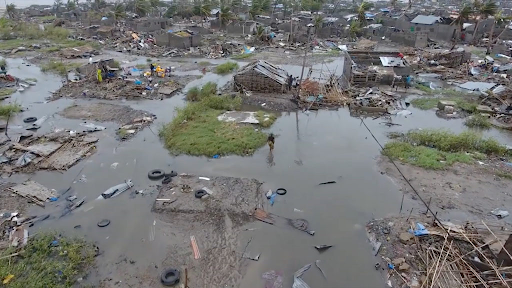Younger People Now Being More Affected with Coronavirus
While at first, it seemed as though the Sars-Cov-2 was attacking older individuals, recent studies have found that a newer group are suddenly at risk for potential infection: young, healthy individuals. It has been found that the more contagious strain of Covid-19, the B.1.1.7 strain has been particularly hitting younger people much harder than expected. It has been found there has been an increase in the younger generation’s hospital visits, as well as vaccinations, and that many younger people are suffering from Covid-19 complications that they didn’t expect. This completely rejects the belief that only older generations are more susceptible to Covid-19.
The particular strain that is affecting younger individuals is the B.1.1.7 strain. Being that viruses mutate frequently, some of the mutations can be even more dangerous variants of the virus. Specifically, the B.1.17 variant has mutations that allow it to bind to more, says Ethan Reiner, a professor of medicine and surgery at George Washington University. This specific virus has a greater prevalence of spike proteins that allow it to latch on. The B.1.17 can stick to cells much more easily, and is known to be much more “sticker.” This signifies that there is a lower amount of inoculum that is needed in order to get sick, and to be affected by the mutant, compared to the normal strain of coronavirus, which requires a sizable amount of inoculum in order to be actually affected by the virus. Because B.1.17 is stickier, individuals may have a higher viral load, and with a higher number of viral particles in the respiratory tract, it will also be easier to spread the virus to other people.
It has been found that B.1.1.7 cases have been reported in all 50 states. Primarily, the virus has attacked only older people, however, now there is a greater number of younger people who are being hospitalized. One potential reason for this increase in the number of younger people’s vaccination is because the older population has either been exposed to the virus, killed by the virus or then vaccinated against the virus. It has been discovered that mostly, unvaccinated individuals are the people who are getting infected and that these are the individuals who are contracting the virus, and also who are ending up in the hospital. A statistic has recently found that more than 78% of people age 65 or older have received at least one dose of the vaccine, and 60% of individuals have been fully vaccinated. However, the statistics for a younger generation have been alarming, where New Jersey saw a 31% jump in Covid-19 hospitalizations among young adults aged 20 to 29.
Many health officials have found that the group most affected are those in their 20s and 30s, a group that is also less likely to be vaccinated, and more likely to be out and not social distancing. Officials are also saying that the B.1.1.7 strain is fueling more of the hospitalizations among younger people. Dr. Justin Skzyrnski, a Covid hospitalist has stated reporting seeing 40% of his own younger patients with the B.1.1.7 strain.
Young adults are not just being affected by this variant, however. More cases of B.1.1.7 are showing up among children too, and researchers are seeing a higher number of kids test positive for B.1.1.7 than other virus types. Kids are not necessarily more susceptible to this virus, but rather, they are more likely to be exposed to it because of their frequently being in and out, and their exposure to school, as well as sports and extracurriculars. AS B.1.17 continues to spread, it is inevitable that the number of young people with cytokine storms will also increase.
Researchers have explained that one of the best ways to prevent the spread of B.1.17 is through getting the current vaccine, as well as wearing masks and maintaining physical distancing, and keeping ventilation going. B.1.17 does spread more easily and is increasing the number of cases, and hospitalizations, but researchers are confident in the efficacy of the vaccines, and following more careful procedures.










